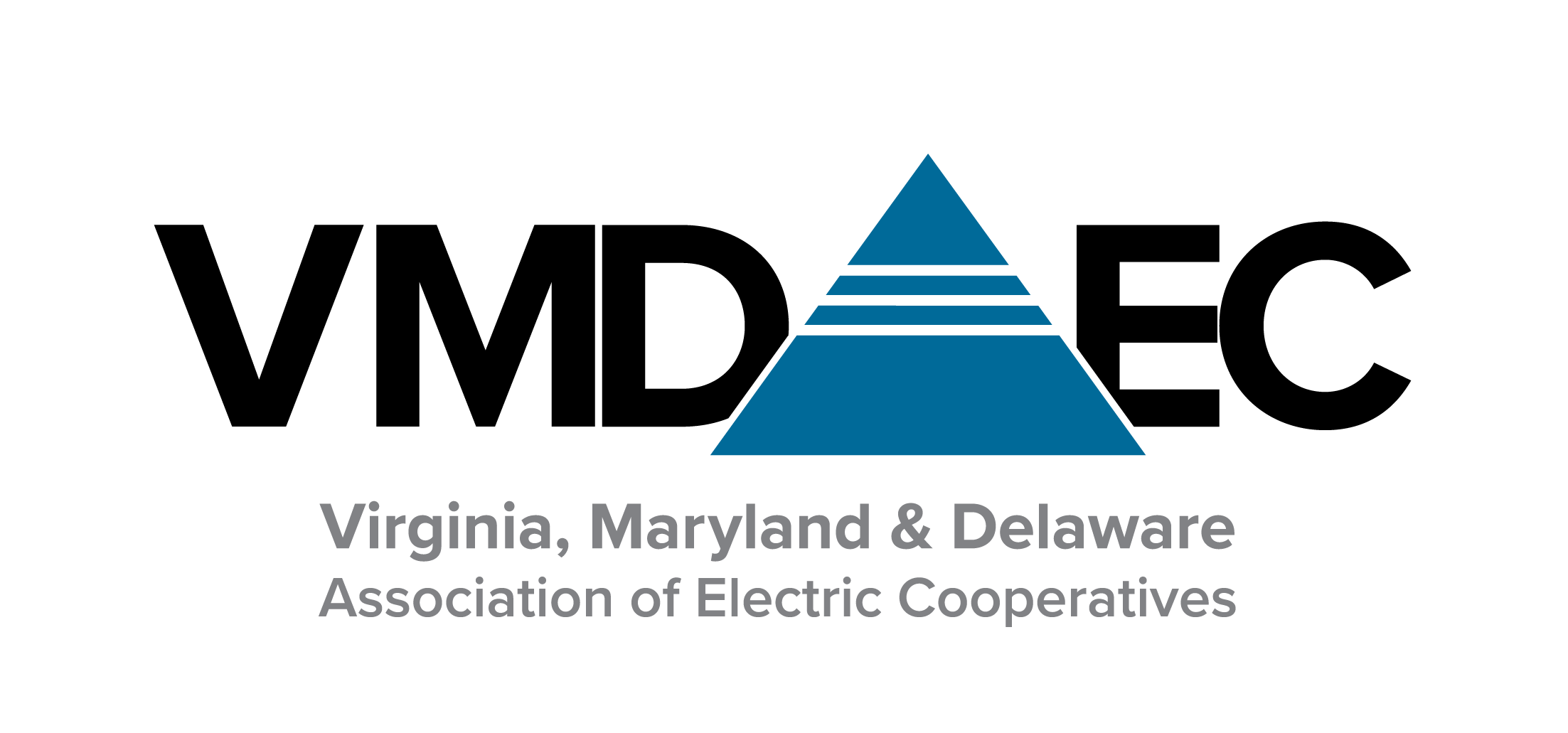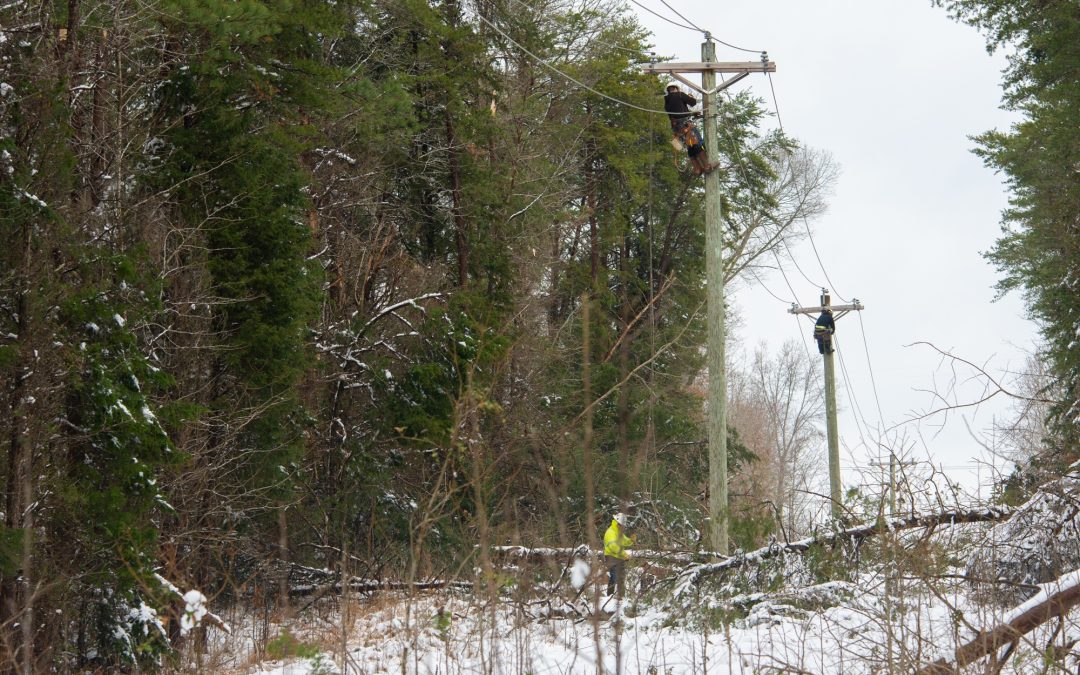The New Year began in a difficult way, as cooperative lineworkers braved wintry, windy conditions for more than a week to restore power following the devastating effects of Winter Storm Frida.
More than 155,000 co-op members were in the dark after Frida lashed the mid-Atlantic starting Jan. 2-3 with 40 mph winds and up to a foot of snow, snapping trees and power lines, and turning roads into impassable piles of hardpack.
Co-ops responded quickly to the call, as crews were at the ready and many materials were prestaged. Still, the heavy, wet snow made restoration conditions difficult. The VMD Association coordinated mutual-aid assistance, with more than 450 electric cooperative lineworkers and construction crew members from some 50 co-ops in 11 states supplementing Virginia co-op lineworkers and contractors.
“We’re extremely grateful to the mutual-aid crews that came here to help restore power in very difficult conditions,” said Alan Scruggs, vice president of safety, training and education for the Association. “As part of the cooperative spirit, we will certainly be ready for them should we be called upon to provide mutual-aid assistance in the future.”
Approximately 45% of power to all members was restored within 48 hours, 66% within 72 hours and 98% within seven days. However, some hard-to-reach areas were out of power for more than a week, despite the all-out effort, as hours of repairs put only a few members back online at a time. Gov. Ralph Northam declared a state of emergency on Jan. 5, following the storm and just before a second, lesser one struck. Co-op officials strongly supported the declaration, which will make it easier to apply for disaster assistance.
The historic storm affected every cooperative in the Association, though the bulk of the damage was in a swath from Lynchburg north to Manassas and east to Fredericksburg and Stafford.
Rappahannock Electric Cooperative was particularly hard hit, with 98,000 of its 170,000 connections out at the peak. More than 1,200 personnel worked to restore power in REC territory. REC registered about 600 broken poles and was regularly tracking more than 1,000 individual outage events throughout the storm. REC President and CEO John Hewa provided daily video updates to the membership every night on the REC Facebook page and website, and, because of the need for individualized work for just a few residences, final restoration work was especially challenging.
Central Virginia Electric Cooperative had some 28,000 outages and at least 50 broken poles, while Southside Electric Cooperative had more than 20,000 outages, as did NOVEC. Hundreds of workers were in the field at both co-ops, and the shutdown of Interstate 95 also hampered NOVEC, which had at least 30 broken poles.
“Crews must remove broken poles and install new ones. It takes several hours to replace just one pole and then re-attach utility equipment and power lines,” cautioned Jill Scherzer, manager of electric system operations at NOVEC.
Outages at Northern Neck Electric Cooperative topped 8,000. Lineworkers there had to hike through snow more than a quarter of a mile to access the poles, and then climb the pole and make the repairs by hand. An estimated 1,000 trees from outside NNEC’s rights-of-way felled lines and damaged equipment.
BARC Electric Cooperative had 1,400 in the dark, and, like other co-ops, had to halt restoration efforts late on Jan. 3 due to the loss of daylight, temperatures in the teens and treacherous road conditions. Crews returned to the field the next morning and finished work by the afternoon.
Jim Moss, vice president of operations at NNEC, summed it up best:
“Our crews were working hard, 16-hour days in below-freezing weather with wet and icy conditions, inaccessible locations, and difficult, dangerous work. I could not be prouder of their efforts this week. Crews replaced or repaired over 50 poles, which is a testament both to the extent of the damage we faced and to their efforts. Our entire restoration team, including mutual aid crews and contractors, did a tremendous job.”
—Report by Steven Johnson, Vice President, Communications, VMD Association
(Above Photo: Not a good way to begin the new year in NNEC territory – Photo By: Jim Robertson)


